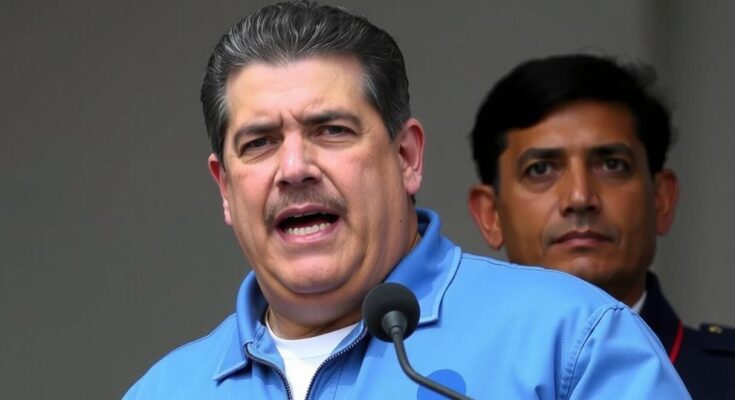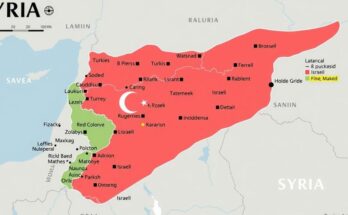Nicolás Maduro is set to begin his third term amid accusations of electoral fraud in the contested July 28 election. Despite claims of victory, many believe opposition leader Edmundo González was the true winner. The political climate remains tense, with mass protests planned against Maduro’s swearing-in. González, recognized as president-elect by the U.S., is actively seeking international support while Maduro’s regime intensifies crackdowns on dissent.
Nicolás Maduro is set to commence his third six-year term on January 10, amidst significant controversy regarding the legitimacy of the July 28 election results. The ceremony, hosted by the ruling party-controlled National Assembly, occurs in a context where both international and domestic critics have raised questions about the electoral integrity. Maduro reportedly declared a victory of over one million votes, although opposition candidate Edmundo González is widely believed to have won the election decisively. The Carter Center, which observed the election at Maduro’s invitation, confirmed that the tally sheets from the opposition were credible.
Jason Marczak, vice president of the Atlantic Council’s Adrienne Arsht Latin America Center, stated, “Maduro assuming another term on Friday is a blatant violation of the votes of the Venezuelan people. The published tally sheets back that up.” The swearing-in ceremony will enable Maduro to continue policies that have resulted in rampant inflation, food shortages, and government corruption. The opposition has planned mass protests prior to the inauguration, yet a recent crackdown by authorities, which included over 2,000 arrests, has created a chilling effect inhibiting public dissent. Opposition leader María Corina Machado is preparing to re-emerge politically after months of concealment as part of efforts to contest Maduro’s legitimacy.
González, identified by the United States as the rightful president-elect, fled to Spain last September under threat of arrest but is now mobilizing support for the opposition, including recent meetings with President Biden. These discussions coincided with Venezuelan authorities offering a $100,000 reward for information leading to González’s arrest. His negotiations with Biden suggest a renewed focus on the political situation in Venezuela under the incoming Trump administration, raising questions about future U.S. policy. Isaias Medina III, a former Venezuelan diplomat, cautioned against any approach that would legitimize Maduro, emphasizing the need for strong actions against criminal activities associated with his regime.
Some experts believe the Trump administration will alter its previous “maximum pressure” strategy regarding Maduro, especially given the humanitarian context, as millions of Venezuelans have fled the country. Marczak noted that the incoming administration would take lessons from past policies, signifying a potentially different approach towards ensuring robust support for the Venezuelan opposition while maintaining strong sanctions against Maduro’s regime.
There are concerns regarding the Maduro regime’s use of detained foreign citizens as political leverage with the United States, reflecting the complex dynamics at play during this transitional political period in Venezuela.
Venezuela has been entrenched in a political crisis marked by allegations of electoral fraud, violent repression of dissent, and a humanitarian catastrophe. Nicolás Maduro, in power since 2013, has faced mounting criticism both domestically and internationally over the legitimacy of his leadership and the conduct of elections in the country. The disputed election on July 28, where Maduro claimed victory, has been called into question by opponents and international observers alike, leading to calls for protests and increased scrutiny of Maduro’s governance. The significant human toll, with millions fleeing poverty and violence, underscores the urgent need for a resolution to the entrenched political strife.
In summary, Nicolás Maduro’s upcoming inauguration for a third term is steeped in allegations of electoral irregularity and widespread discontent among the Venezuelan populace. As opposition leader Edmundo González seeks international support to challenge Maduro’s authority, the situation remains fraught with uncertainty. The future of U.S.-Venezuela relations, particularly under a new Trump administration, will likely reflect a balance between continued pressure on Maduro’s regime and humanitarian considerations for millions of displaced Venezuelans. The global community continues to call for accountability and democratic reforms in Venezuela under the oppressive governance of Maduro.
Original Source: www.foxnews.com




